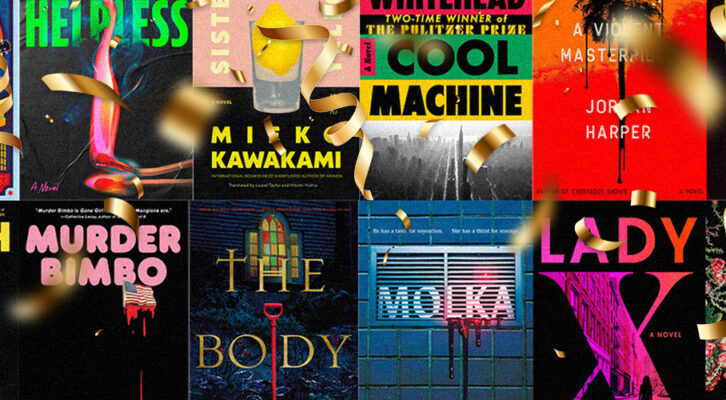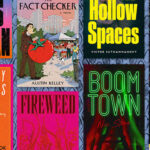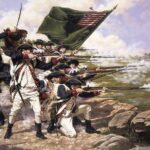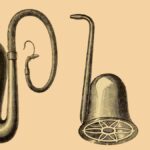Edgars season is upon us!
Every year, the Mystery Writers of America hands out awards to the best and brightest of the crime and mystery world. The tradition reaches back to 1946 and counts the genre’s greats among the winners: Chandler, Millar, le Carré, Parker, Leonard…the list goes on. In addition to honoring the best books of the year, the MWA also celebrates other contributions to the genre, through its special awards. You can find the full list of nominees and special award winners here.
Ahead of the big night—April 26th, 2018—we caught up with four of the MWA Special Award winners for a wide-ranging conversation, covering everything from the state of the genre, to favorite reads and festival memories, to crime-solving animals. (Interviews have been edited and condensed.)
The following recipients of special awards participated in the discussion:
- Peter Lovesay, Recipient of the MWA Grand Master Award,
- Danny Caine, Recipient of the MWA Raven Award for his work as owner of the Raven Bookstore,
- Lisa D. Gray, Recipient of the MWA Robert L. Fish Memorial Award for her short story “The Queen of Secrets,” collected in the anthology New Haven Noir
- Kristopher Zgorski, Recipient of the MWA Raven Award for his crime fiction book review blog, BOLO Books.
CrimeReads: Let’s start things off with an icebreaker—if you were going to pick an animal to help a detective solve a crime, which animal would it be? Options include, but are not limited to, parrots, dogs, cats, and elephants.
Danny Caine: I would of course pick our store cats, Dashiell and Ngaio. With names like that, I’m sure they’d be a huge help. I’m not saying they’d be good cop/bad cop, but Dashiell’s persistent outspokenness and Ngaio’s steely stoicism would match up to be useful in many crime-solving situations.
Kristopher Zgorski: I am not going to answer this, mainly because I am not a huge fan of having animals help to solve the crime; but that said, this question did make me stop think: “What kind of crime would an elephant help solve?” I love elephants and The White Bone by Barbara Gowdy is one of my favorite non-crime focused books.
CrimeReads: What do you think are the most important issues in the genre right now?
Danny Caine: I think an important issue facing mystery and all genres is diversity and representation. We must use whatever privilege and influence we have to amplify and advocate underrepresented voices. In order to capture young readers, any genre must make sure young readers can see themselves in the books they read. I think mystery is doing good work in diversifying, both through amazing books by authors of color (like Attica Locke’s terrific Bluebird, Bluebird) and through important discussions like the one surrounding the Staunch Prize. But there’s lots more work to be done. For starters, I’d love to see more mysteries from an LGBTQ perspective; it’s a question we get asked at the store that’s not as easy to answer as it should be.
CrimeReads: And, one more icebreaker question—if you could go have dinner with any mystery writer, dead or alive, who would you pick and why?
Lisa D. Gray: Donald Goines or Chester Himes. I think they did great work. They created strong characters, and the stories they told were so layered and nuanced. Himes in particular is a favorite because he captured the heart of black culture in such a compelling way, he was also a great humorist.
Peter Lovesay: Edgar Allan Poe, because he started it all and his storytelling has never been bettered. In a relatively small output he invented virtually every type of crime story, the puzzle, the thriller, the locked-room mystery, the classic detective, the amateur sleuth, the serial killer, the real-life mystery turned into fiction, the supernatural, the small town murder and, of course, horror. He’d be a scary dinner companion and I wouldn’t try to keep up with his drinking, but what an opportunity it would be. Oh, and I’d do the cooking myself.
Kristopher Zgorski: Since I have had dinner with more than a few of my modern favorites, I would have to go with Agatha Christie. Especially if we can do that “now,” so that I can discuss with her how influential she has been to the crime fiction genre over time. Also, maybe I could get a definitive answer on that 1926 disappearance.
CrimeReads: Fill in the blank: when you’re not reading mysteries, you’re reading/watching _________.
Danny Caine: I’m a poet by training, so I read lots of poetry collections, plus literary fiction as well. It’s pretty important as a store proprietor, even a store with a historic mystery emphasis, to be widely read since I could field all sorts of questions on any given day.
Peter Lovesay: Anything on the history of running. I can bore the pants off anyone by talking about the great professionals of the nineteenth century with their colorful track-names: Deerfoot, the Crow-catcher, the Regent Street Pet, the Gateshead Clipper, the Norwich Milkboy, the American Deer and Young England. This weird obsession was sparked by my father taking me to the Olympic Games as a child. I delved into the history of the Olympics and earlier. Out of it eventually came my first book, The Kings of Distance, which was published exactly fifty years ago, in 1968. When the chance came to enter a first crime novel competition two years later, I used an ultra-long-distance race as the setting, called it Wobble to Death and won the £1000 prize. Well, it was a catchy title and different, you have to admit…
Lisa D. Gray: Everything. I am a pretty eclectic reader, watcher, and writer. Much of what I write guides what I am reading at any given moment. For instance, I recently picked up my pen to tackle edits on my novel in progress. It focuses on a set of girls in 1963 Georgia who become leaders in the civil rights movement in their hometown. To inform the writing of the novel, I’m reading southern writers, I’m reading adult novels told from a child’s or teen’s perspective, and I’m reading books that play with form and voice in fun and innovative ways.
Kristopher Zgorski: Reality television. The competition shows only—Survivor, Project Runway, Top Chef, etc. etc. Why? Yes, I know these shows are edited for certain results, but I also know that human nature is human nature. You really can learn something by watching how other people react in stressful situations. A large part of the reason I love crime fiction is because it is such a vital representation of our society—the crimes that occur tell us so much about the time in which they are taking place. Similarly, I think reality television reflects what is happening in our real world. You can predict how certainly people are going to react, and actually over-time (I’ve been watching Survivor from season one), you can see how contestants have evolved in terms of both their social interactions and their game strategy.
CrimeReads: Who are some of your influences?
Lisa D. Gray: Novelists whose work has influenced my writing include Jane Austen and Toni Morrison who top the list followed closely by Tayari Jones and Zora Neale Hurston. I love Austen’s work because like the others on the list she tackles issues that we all grapple with and that have not changed much since she was writing her books. Things like family, relationships, class, and for the other three that top my list, race. They all tell good stories that I can not put down. I discovered Austin Clarke a few years ago, and he was a prolific writer whose work strongly influences mine.
I just finished Angie Thomas’ The Hate You Give and Tayari’s latest An American Marriage, which I believe will become two of America’s great novels. oh and Jesmyn Ward. Yes, her Sing Unburied Sing, which I am reading now, and Salvage the Bones are perfection. There are others like Hemingway and Faulkner who I read at least once a year, but they are not my primary influences. My primary influences include Cristina Garcia, Elmaz Abinader, Chimamanda Ngozi Adichie, Yiyun Li, Walter Mosley, Lorrie Moore, Faith Adiele, Susan Ito, Attica Locke, James Baldwin, Octavia Butler and Tananarive Due. I also read and try to emulate writers Tina McElroy Ansa, Gabriel Garcia Marquez, Ben Okri, Nayomi Munwera and oh, my writer crush right now is Chris Abani.
Oh, and then there are my poets—Staceyann Chin, Ruth Forman, and Tongo Eisen-Martin. I keep Chinaka Hodge’s Dated Emcees in my bag and pull it out when I’m commuting to work on BART, it’s worn and dog eared.
I could go on…
CrimeReads: What’s a question you wish you were asked more?
“I had another [letter] from the last British hangman, Syd Dernley…He said he’d bought the gallows from Cambridge Jail and had them rebuilt in his cellar. I could get a publicity picture taken of me standing on the trap with Syd at my side holding the noose. I thanked him and declined.” – Peter Lovesay
Peter Lovesay: “Do you ever hear from your readers?” It’s the cue for me to pull a plum out of my letters and emails file. I keep anything that amuses me, like the one sent to my publisher more than thirty years ago to say how much she enjoyed my Victorian mysteries and wanting to know if I was still alive. She and her husband had been arguing about it in bed. I thought people had better things to do in bed. Then there was the Japanese fan wanting a photo of me in black and white “or even better in the pink”. I had another from the last British hangman, Syd Dernley, offering advice after I’d written about a Victorian hangman in Waxwork. He said he’d bought the gallows from Cambridge Jail and had them rebuilt in his cellar. I could get a publicity picture taken of me standing on the trap with Syd at my side holding the noose. I thanked him and declined. And after I wrote a black comic mystery called The Reaper about a vicar who misuses the church funds and murders the bishop when he comes calling in chapter one, I had quite a deluge of mail from members of the clergy saying how much they’d enjoyed it.
CrimeReads: Pick a trend in mystery and crime writing you think is on the rise, or one that’s over.
Kristopher Zgorski: I think we are finally on the down-swing of books with “girl” in the title. It has evolved to include other examples: “daughter” “wife” “woman” even “lady” but as long as those include effective qualifiers that hint at a book’s theme, I can live with that. I just was never a fan of “girl” except in the rare case where the titular character really was a girl.
CrimeReads: This one’s for Danny and Kristopher—how does it feel to be the recipient of the Raven Award? (The Raven Award values those who’ve contributed to curating, promoting, and preserving mystery and crime fiction.)
Danny Caine: It feels a bit strange to me, and definitely humbling. Of course, everyone at The Raven is hugely grateful to the MWA for the recognition. I bought the Raven in August 2017, and found out about the Raven Award three months later. All of the work of building the Raven’s mystery community was done by previous owners Mary Lou Wright, Pat Kehde, and Heidi Raak. Mary Lou, for instance, has been active in Sisters in Crime since its inception, at times serving as treasurer. The previous owners not only filled a need for a Mystery bookstore in Lawrence, but they started our still-thriving book group program and hosted authors like Sara Paretsky, Martin Walker, Robert Crais, Martha Grimes, Anne Perry, and Sue Grafton among many, many others. I’m accepting the Raven Award on their behalf, and I dedicate it to their decades of hard work.
“Books allow us to walk in the shoes of another for just a short time and from that compassion is born.” – Kristopher Zgorski
Kristopher Zgorski: It is really impossible to express what an honor this award is. There is a feeling of validation, of course, but really the acceptance into this community was felt very early on. I think that my fans and followers immediately grasped that my sole intention was to encourage more people to read. It really is all about the books, folks. Authors—like teachers—are undervalued. When I think about how much money movie stars, sports players, and politicians make, it saddens me that we as a society do not value the written word in equal measure. Books allow us to walk in the shoes of another for just a short time and from that compassion is born. If I played any small part it getting someone to pick up a book that touched them, a book that they might have otherwise missed, then my job is done. Receiving this award from MWA tells me that I have succeeded in doing that on more than one occasion and I hope to continue to lead readers to quality books for years to come.
CrimeReads: I’m going to ask a follow-up question specifically about mystery bookstores. Can you talk a bit about the role mystery bookstores play in preserving and curating the genre? We’re in a golden age of independent bookstores, but there are fewer mystery bookstores around than ever—why do you think that is? How does the Raven Bookstore build community?
Danny Caine: A mystery bookstore is the nucleus of a mystery community. Here at the Raven our book groups are the chief engine of our mystery communities, and their influence is felt in many ways. Their selections always end up on our bestseller shelf, simply because they sell enough copies to the book groups alone. The bestseller shelf then makes people buy more copies of the book. In this way, a natural curation happens and books we believe in get more sales. Plus, we recently started a Raven Book of the Month subscription program, which really lets us curate books we believe in. People pay up front and receive a mystery in the mail every month, complete with a handwritten note by our mystery curator—there’s no better way to advocate for a book we believe in that may not be getting the attention it deserves. All of these things are directly counter to the way massive online-only retailers (we won’t name names) do business. There’s no community or curation when you buy books from a faceless online conglomerate, so there’s still a niche for independent bookstores.
“The younger generation that will carry Mystery into the future is hungry to see themselves in the books they read, and more importantly in the authors they read.” – Danny Caine
That said, it’s hard to ignore the decreasing number of mystery stores. I’m not sure why, though I have a feeling it might have to do with a slowness to diversify the genre. I know, in general, a lot of the books that sell well at the Raven, mystery or otherwise, are by young authors from many races, orientations, and identities. Poetry, fiction, certain nonfiction genres, and kids books are all beginning to see big sales numbers from young and diverse perspectives. I’d love to see mystery embrace more of that energy. The younger generation that will carry Mystery into the future is hungry to see themselves in the books they read, and more importantly in the authors they read. We must allow more space for mystery readers of color, and mystery readers of all sexual orientations.
CrimeReads: A question for Peter—Which do you find yourself more inclined to these days, historical or contemporary settings?
Peter Lovesay: Although I started with eight Victorian mysteries featuring Sergeant Cribb and followed them with a number of others set in the years up to World War II, I now have a modern police series set in the city of Bath, with Detective Superintendent Peter Diamond as the sleuth. But because Bath is steeped in history I can indulge myself with plots that touch on little-known discoveries from the past, like Jane Austen’s aunt being arrested for shoplifting in the town. And the fact that Mary Shelley wrote Frankenstein in lodgings just across from the Abbey. This year I was invited there to see a plaque unveiled to mark the site. The latest novel, Beau Death, has Diamond investigating a mystery surrounding the death of Beau Nash, the eighteenth century man who made the city fashionable. You don’t get far in a Diamond book without some snippet from the past. In short, the answer to your question is that historical and contemporary needn’t exclude each other.
CrimeReads: Here’s one for Lisa. You website describes you as a writer and “social change consultant,” both professions we highly approve of—could you elaborate on what a social change consultant does?
Lisa D. Gray: I work with organizations and people who seek to catalyze and make change in the world. My consultancy focuses on answering the question ‘What does equity look like in sectors such as education, workforce, and the arts. I am interested in helping organizations tell their stories and creating space to amplify the voices of those people and communities who do not always get heard in policy debates and forums. My work allows me to help others truly be the change they want to see in the world. I tell people I train warriors because a lot of what I do focuses on giving people the tools they need to create systemic change and fight for their communities survival.
CrimeReads: Here’s a question for Kristopher—You’ve built your website, BOLO Books, to an impressive size and scope. What’s your advice to bloggers, reviewers, and critics for covering the mystery genre?
Kristopher Zgorski: Blogging in not an easy way to get free books—you can go to the library for that. Before anyone decides to jump into this arena, I always advise them on the amount of work involved. Just like the novels we love, the end product looks so much easier than the reality of creating it. It takes dedication, commitment, consistency, and the ability to brush off—and learn from—criticism. If all of that is in place, then I say go for it. There is still plenty of room in the crime writing blogging world for new practitioners. Figure out what you are good at and what you love about the genre, and then find a way to make that your blog’s trademark contribution. Look at what others are doing, learn from them—honestly, the book blogging community is incredibly supportive of each other, and don’t be afraid to make a few mistakes along the way.
“Blogging in not an easy way to get free books—you can go to the library for that.” – Kristopher Zgorski
My other golden piece of advice is to always stay true to yourself. As reviewers we get pitched an obscene amount of books. Don’t let yourself be bullied into reviewing things that simply aren’t your taste. There is a reader (and a reviewer) for every book; and a book for every reader (or reviewer). Be honest with your critiques—fans will come to learn how your opinion relates to their own (or doesn’t) and that is how an audience is built.
CrimeReads: Here’s another bookstore question: Danny, what’s your favorite book to handsell?
Danny Caine: One book that’s done super well for us is The Dry by Jane Harper—I feel confident selling it to absolutely anyone looking for a mystery. It’s so well plotted, with such propulsive prose. I myself love how environmental issues play into the plot and the thrilling climax. I must’ve handsold it twenty times since the paperback came out in January. Joe Ide’s IQ is also fun to handsell. It’s humor and its hip-hop flavored plot make it a great sell for younger-generation mystery readers.
CrimeReads: Here’s another one for Lisa, as a winner of the Robert L. Fish Memorial Award for short story writing. Quick, name your five favorite short story writers, in mystery or in general.
Lisa D. Gray: My favorite short story writer is Toni Cade Bambara. Gorilla My Love does all of those crafty literary things that give me goosebumps. My Man Bovanne and The Lesson are my faves in that collection. Vanessa Hua’s short story collection Deceit and Other Possibilities is magnificent as is The Thing Around Your Neck by Chimamanda Ngozi Adichie. Oh, and then there’s Meron Hadero whose work is simply lyrical. Other favorites include Luis Alberto Urrea and Kathleen Collins whose collections are on my nightstand waiting for me to crack their spines.
A few years ago I made up a list of my top short stories, I came up with eleven. Today the list is longer, but these hold fast at the top. Their authors are among my favorite short story writers.
Here’s the list:
1. “The Management of Grief” by Bharati Mukherjee
2. “People Like That are the Only People Here” by Lorrie Moore
3. “The Final Inning” by Thomas Glave
4. “Cerium” by Primo Levi
5. “The Things They Carried” by Tim O’Brien
6. “The Lesson” by Toni Cade Bambara
7. “The Bear Came Over the Mountain” by Alice Munro
8. “City of Clowns” by Daniel Alarcòn
9. “Goodbye My Brother” by John Cheever
10. “Immortality” by Aaron Safronoff
11. “Separating” by John Updike
CrimeReads: And, another one for Lisa. You’re San Francisco based, but you’ve won an award for a story in New Haven Noir—what place in the US most inspires you, as a setting?
Lisa D. Gray: Yes, I live in the Bay Area, but grew up in New Haven, CT. I went to school in Atlanta, GA and it pops up as a setting in my work especially my novel in progress, Stolen Summer, takes place in a fictional town called United, Georgia. Almost all of my short story collection, which is in search of a home, takes place in New Haven. It is the place I know the best and is rich with history and tension that is perfect for stories. In The Queen of Secrets, which appears in New Haven Noir and won the Robert L. Fish Edgar award this year, the final scene takes place on Bradley Street near one of the narrator’s, Jenell’s, school Saint Mary’s High, which is my alma mater. Much of that story takes place in my childhood haunts. None of my shorts or other work takes place in the Bay or San Francisco, yet.
CrimeReads: Tell us your favorite Edgar Awards memory, or mystery conference/festival/dinner memory.
Peter Lovesay: In 1978 the Mystery Writers of America hosted the 2nd International Congress of Crime Writers, a week-long event at the old Biltmore Hotel on 43rd St, New York, and about 50 British crime writers flew over. It was my first time in the US and a life-changing experience, a chance to meet some of the great names in the genre. Our party included Michael Gilbert, Julian Symons, H.R.F.Keating, Christianna Brand (who advised us to travel with a gadget for making proper tea in our rooms), Margaret Yorke, Reginald Hill, Desmond Bagley and Ken Follett and our flight was delayed 4 hours, by which time we’d bonded over numerous cups of air terminal tea. But at JFK the smiling Dorothy Salisbury Davis was still waiting to greet us and take us by bus to the hotel.
Next morning we toured the snow-covered lower Manhattan and ascended one of the iconic Twin Towers. I must admit I chickened out of the autopsy field trip next day. The highlight of my week was joining a panel that included the prolific Aaron Marc Stein, the even more prolific Isaac Asimov (“Writing to me is like breathing”) and Mary Higgins Clark, whose enormous advance for the paperback rights of Where Are The Children? was the talk of the town. You can imagine the difference between Mary’s line and mine at the table we shared at the book-signing afterwards.
That starry week culminated in the 33rd Edgars Banquet hosted by MWA President Bob Fish. Grand Master status was conferred on Dorothy B. Hughes, Daphne Du Maurier and Dame Ngaio Marsh. I was at a table with two of my favorite writers, Gregory Mcdonald and Edward D. Hoch. Nearby were Ross Macdonald, Hillary Waugh and Fred Dannay. I met a young man called Otto Penzler, who would become my publisher at Mysterious Press, and the great short story writer Stanley Ellin, who persuaded me to join the MWA. After that amazing week I didn’t need much persuasion.
Kristopher Zgorski: This year will be my first time at the Edgars. I’d say it’s quite a way to start and I have no doubt that I will come way with many, many new memories. But honestly, all of these gatherings—be they awards ceremonies, conventions, or books signings—are highlights for me, because I love the people so much. Some friends I only see at these events annually, while others I keep in constant contact with, but in either case when we get together, it feels like a family reunion. And there is nothing like welcoming a new member to the family. I always encourage newbies to volunteer when they can; there is no better way to ease yourself into this crazy group of people.
CrimeReads: And another question for Kristopher. You’re a champion for the genre as a whole, but also you’ve been incredibly supportive of queer voices in mystery fiction. We know this is a huge question, but what do you consider the future of LGBTQI mystery fiction, and what are the biggest issues in LGBTQUI mystery fiction today?
“LGBTQ+ crime writing has always been there, the trouble of that the media coverage of it simply wasn’t there. This is true of much minority writing.”- Kristopher Zgorski
Kristopher Zgorski: LGBTQ+ crime writing has always been there, the trouble of that the media coverage of it simply wasn’t there. This is true of much minority writing. When I started BOLO Books, I went in knowing that I was going to try to find a happy blend between popular books and ones that were often not covered in other outlets. I hope that I have done that; I think I have, but I know that there is always room for improvement.
Specifically speaking in terms of LGBTQ+ writing, there are still voices crime fiction needs to hear more from. Personally, I would love to see more crime fiction from the point of view of transgender and gender-fluid characters.
CrimeReads: Here’s one last question for Peter—you’ve been a figure of the British crime writing scene for a good amount of time. How have you seen the genre change over time?
Peter Lovesay: In essence, mystery writing hasn’t changed all that much, but it has expanded massively. When I started, Agatha Christie was still writing and she remains so popular that new novels featuring Hercule Poirot were commissioned by Agatha Christie Limited. Sherlock Holmes, poor fellow, is in the public domain and has appeared in hundreds of stories by other authors. Characters created by Dorothy L.Sayers, Margery Allingham and Ngaio Marsh are undergoing the same treatment. I see it as confirmation of the enduring appeal of the classic detective story—which was taken up and developed more originally by Colin Dexter, Ruth Rendell and P.D.James, but with police detectives rather than amateur sleuths.
Almost all varieties of the mystery genre were initiated long before I started writing (most by Mr Poe), but they have been lifted to new levels by writers as brilliant as Sara Paretsky, Walter Mosley, John le Carre and Jeffrey Deaver.
Perhaps most encouraging of all has been the spread of crime writing across the world. At my own publisher, Soho Press, I think they’ve given up counting the number of international writers they publish. Soho is the united nations of mystery fiction. And that’s wonderful. When I visited other countries early in my career, I’d hear repeatedly from authors that they couldn’t get published in the English language. Now we’re able to find out what we’ve been missing.
—Featured image by Hartwig HKD.

















